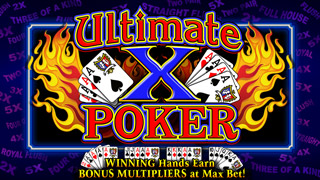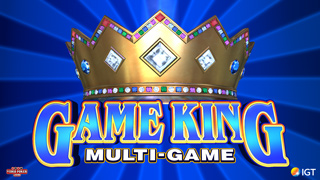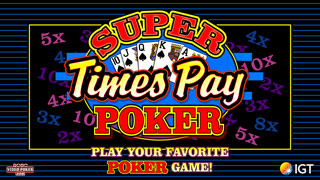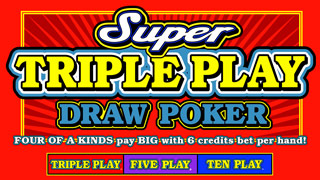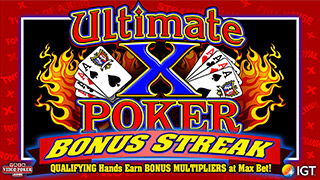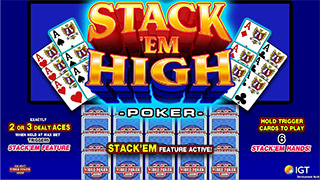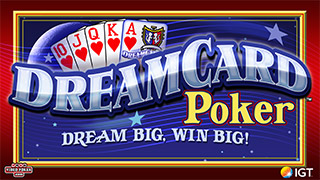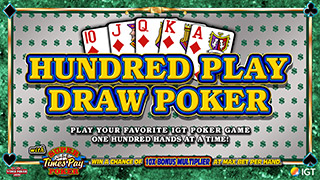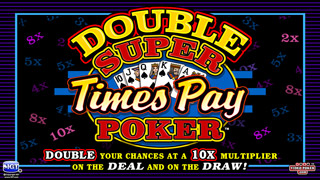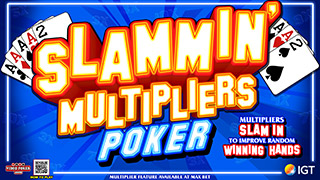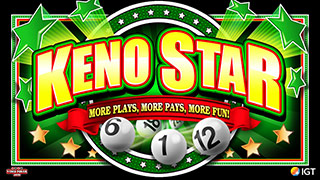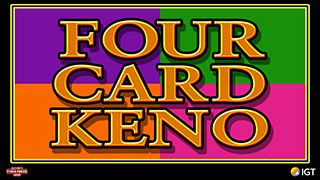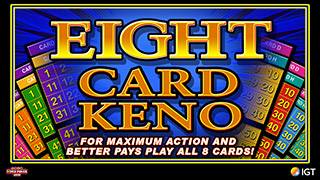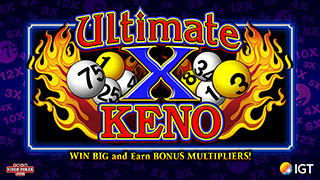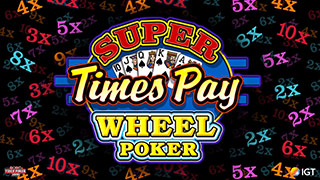Four to a royal question
-
New2vp
- Video Poker Master
- Posts: 1881
- Joined: Mon Sep 11, 2006 4:02 am
Re: Four to a royal question
New, I like the way you cut your losses. I hope your less than pretty girlfriend is feeling better.
-
faygo
- Video Poker Master
- Posts: 2925
- Joined: Tue Jan 09, 2007 6:55 am
Don't remember much of what my girlfriends looked like. So long ago. I will say my Tanqueray is beautiful and gets more beautiful each and every day.
-
Frank Kneeland
- VP Veteran
- Posts: 762
- Joined: Wed Feb 02, 2011 6:59 pm
@New2VPThanks for getting the joke. I wonder how many out know where that equation came from and how long it took the human race to figure it out. If anyone cares...Recomended Book: Against the Gods: The Remarkable Story of Risk by Peter L. Bernstein
-
New2vp
- Video Poker Master
- Posts: 1881
- Joined: Mon Sep 11, 2006 4:02 am
@New2VPThanks for getting the joke. I wonder how many out know where that equation came from and how long it took the human race to figure it out. If anyone cares...Recomended Book: Against the Gods: The Remarkable Story of Risk by Peter L. Bernstein
It is possible that most of the human race has NOT figured it out, but they luckily they can learn this from experts such as you...and Mr. Bernstein.This actually is one of the few books I have read, perhaps almost a dozen years ago now and I agree with you that it makes a tremendous read. I would highly recommend it. I have also read yours, obviously much more recently (and, of course, I would recommend that, too).I suspect you were trying to inform as well as amuse when you made the post under discussion, and I do have one more suggestion in that regard.I was a bit troubled by
the terminology that you used in your book in instances such as these. And I've
seen you repeat it a couple times in posts, so maybe this will keep
other readers from being confused, especially if you agree with me.P.S.
1-(p-1/p)^Np is generally considered to be a probability and you
refer to it as such in your book in some places, so it is a number that is between 0
and 1. With that understanding, you can much more simply write this rule as:
1
- (1 - p)n
Now, I know some other place(s) in your book you say that p is really the reciprocal
of probability, which is cycle time, but the double references are at
best confusing and at worst possibly contradictory. Plus I think it is unnecessary to include the additional
level of complication since the formula is simpler to write without
that.
Even if you want to consider p to be the expected cycle time (in this
case 47), rather than a probability (in this case 1/47), when trying to
write the formula in a line as you did here, you really need to include
an additional level of parentheses (or brackets):
1 - [(p-1)/p]^NThis lets the reader know that the first p needs to be divided by the second p whereas standard rules of math would suggest that would not be the case in the section heading in your book and repeated in this thread.
I figured out what you meant, but I already knew what the answer was
supposed to be. I would have had more trouble if I was trying to learn
from what you wrote._________________________________________________________________________
It is of much less consequence, but in your application of that rule in this instance, I got some different answers:
59.1%
chance of getting a specific card in under 47 draws (59.9% if you include the 47th draw) and 83.6% chance of doing it in under 94 draws (83.9% if you include the 94th draw).I predict a 63.6% chance you'll get it in under 47
draws, and an 86.7% chance you'll do it in under 94 draws.
I had a guess that your figures might have been due to using an estimate that the
probability of achieving success within one cycle is approximately 1 -
e^(-1) and the probability of achieving success within two cycles is
approximately 1 - e^(-2). Those numbers are closer to what you wrote,
63.2% and 86.5%, but still off somewhat. The estimation method using Euler's e, works better for larger
cycle times; for cycles as short as 47, the estimates would be off
somewhat as indicated in the previous paragraph.Oh, well, like I originally said. There may be little interest to a limited audience here, so I'll stop.
-
Frank Kneeland
- VP Veteran
- Posts: 762
- Joined: Wed Feb 02, 2011 6:59 pm
Well I found it all very intresting. And I'm saving it for after coffee review.I like the notation suggestions. I do not know how to do super-script on this forum.I used: 1-[46/47] ^47~FK
-
New2vp
- Video Poker Master
- Posts: 1881
- Joined: Mon Sep 11, 2006 4:02 am
Well I found it all very intresting. And I'm saving it for after coffee review.I like the notation suggestions. I do not know how to do super-script on this forum.I used: 1-[46/47] ^47~FK
Frank, ignore the last part of my message, the part under the line. Now that I look at it again, the error you made was of less consequence than the one that I made in trying to explain it. Since you said under 47, you should have used 1 - [46/47]^46. But in trying to inform you of this, I think I incorrectly entered the following on my spreadsheet: 1 - [51/52]^46. (I actually was referencing a cell that had 1/52 in it rather than 1/47.) Of course, my numbers are wrong because I was "playing with a full deck", when it obviously wasn't full. [Unintentionally, the short-hand probability calculation that I showed for hitting within 1 cycle, 1 - e^(-1), does indeed turn out to be fairly close to being correct, even for cycles as short as 47.] I got the superscript in the last message by copying a cell that already had the format from an Excel spreadsheet into the Message Box. The notation comment still stands. The formula that I gave is equivalent to what you used here without re-defining probability to be its reciprocal.
-
Frank Kneeland
- VP Veteran
- Posts: 762
- Joined: Wed Feb 02, 2011 6:59 pm
I had not noticed your error and merely thought I had made a mistake somewhere. I have no illusions that I'm better at math than you are. I try to defer. You know I'm completely self taught.For those out there that are following this thread, the book I recommended goes into the several thousand year struggle the human race went thru to master risk management and the origin of such things as binomial theorem, which is what we've been discussing.The How, why, and where of probability math is really quite a lot more interesting than you'd expect. People's whole lives were spent bringing us these marvelous tools we now take for granted. The book gives a glimpse into what it was like before, and the slow road to discovery. Really an eye opener.
-
mightwin
- Senior Member
- Posts: 195
- Joined: Mon Dec 01, 2008 4:24 pm
My last 2 royals began as straight flushes, and after I took a gamble - became royal flushes. I was happy I made that choice. Of course I would have kicked myself if it went the other way (throwing away a winning hand).
-
Frank Kneeland
- VP Veteran
- Posts: 762
- Joined: Wed Feb 02, 2011 6:59 pm
My last 2 royals began as straight flushes, and after I took a gamble - became royal flushes. I was happy I made that choice. Of course I would have kicked myself if it went the other way (throwing away a winning hand).Are you saying that you have only thrown away two pat Straight Flushes in your entire VP career and both of them became Royals???Or are you saying that you have thrown away many Straight Flushes in the past and two happened to be Royals?Math would predict that in your career you tossed over 90 SF going for the RF.~FK
-
Frank Kneeland
- VP Veteran
- Posts: 762
- Joined: Wed Feb 02, 2011 6:59 pm
@mightwinI was hoping you would give us some base rate information so we can know just how lucky you were.



